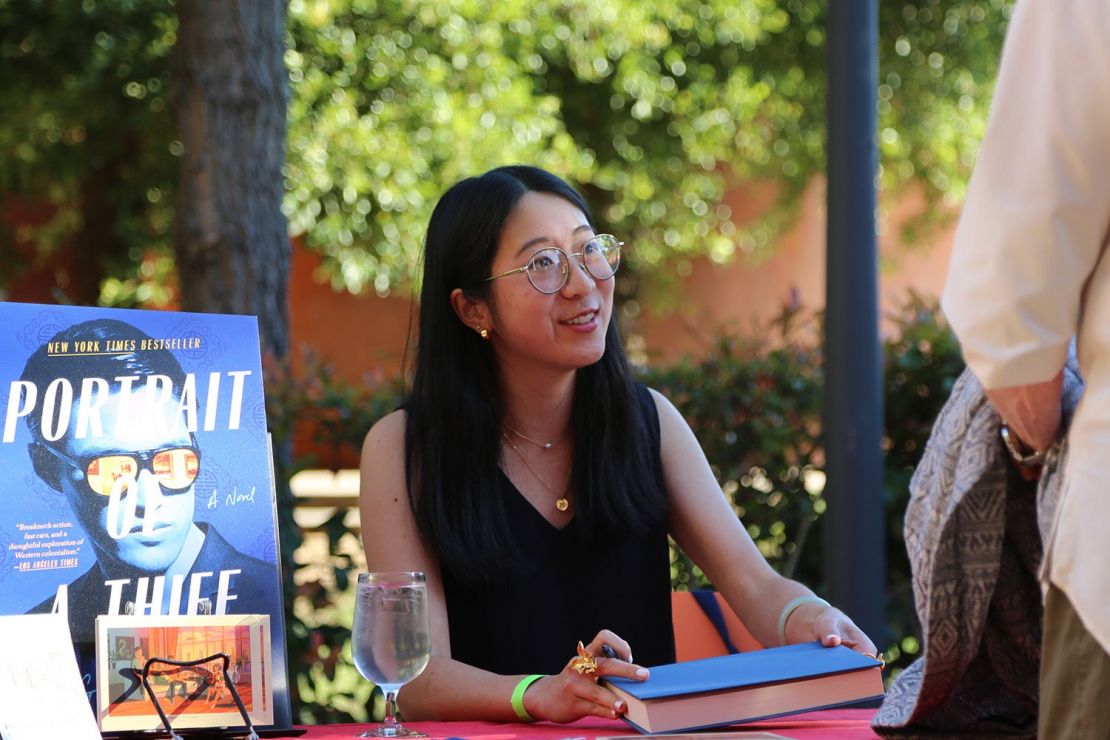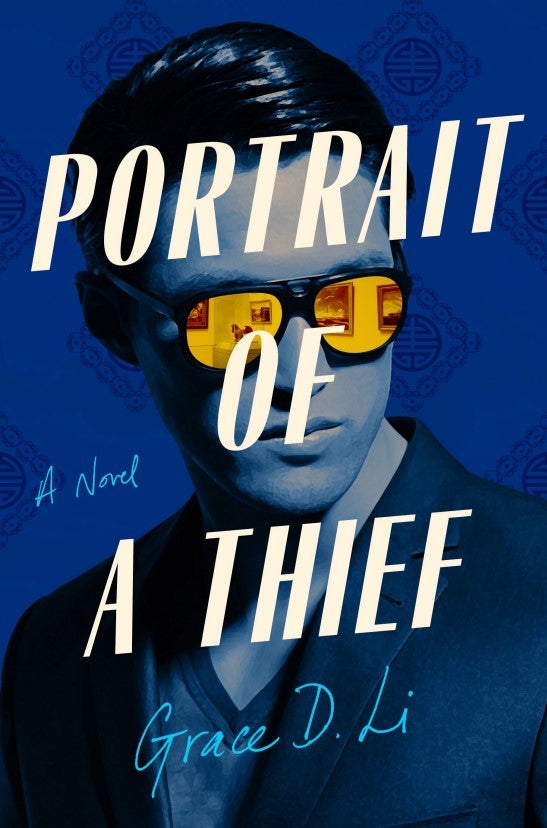
Stanford medical student Grace Li signs copies of her book at the Anderson Collection on Thursday, Aug. 3, 2023. (Image credit: Alex Kekauoha)
A few years ago, when Stanford medical student Grace Li was a recent college graduate living in New York, she read news reports about a string of art heists at museums around the world. The stolen works had originally been looted from China, and experts speculated the thefts were a recovery mission to restore the works to their country of origin. Li was fascinated.
“I got myself thinking, What if this was college students doing this? How would they pull a heist like this off? What would the research involve?” Li recalled. “So, I started writing.”
The result is Portrait of a Thief, Li’s debut novel about a group of Chinese American college students hired to steal back looted art from international museums. Released in 2022, the book has made the New York Times bestseller list and is currently in development as a series at Netflix.
On Thursday, Li participated in a book talk at the Anderson Collection to discuss the novel. The event included a live reading, a Q&A moderated by Mijiza M. Sanchez-Guzman, associate dean in the Office of Medical Student Affairs, and a reception and book signing. It was sponsored by the 1st Generation Mentorship Program (1st Gen), The Asian Pacific American Medical Student Association (APAMSA), the Anderson Collection, and Medicine & the Muse.
Portrait of a Thief
Portrait of a Thief centers around Will Chen, a senior art history major at Harvard who is approached by a mysterious Chinese benefactor with a job offer: steal back valuable Chinese art that had been looted from Beijing centuries earlier. Chen assembles a crew of thieves to carry out the heist that, if successful, will net them a $50 million reward.
While much of the book explores the history of stolen Chinese art and colonialism, it also addresses the first-generation American experience and the characters’ complicated feelings about their Chinese American identities – themes inspired by Li’s own experience growing up in Texas.
“I was often asked questions about where I was from [or] I was complimented on my English,” Li said at Thursday’s event. She recalled similar experiences while visiting family in China, who would ask if she could use chopsticks or if she could speak Chinese.
“Often, it felt like whether I was here or visiting my family in China, I was still not enough for either place,” said Li, who graduated from Duke University with degrees in biology and creative writing.
“Writing for me is a way of working through my feelings. And there were a lot of feelings about identity and immigration and my parents coming to the U.S.,” she said.
Li has always loved heist stories and was excited to put her own spin on the genre. She started writing Portrait of a Thief before enrolling at Stanford Medicine in 2019 and finished at the end of her first year. Much of the book was written in her free time during the COVID-19 pandemic or on Wednesdays, which Stanford medical students have off during their preclinical years.
“I told myself that Wednesday would be my writing day,” she said. “So, I wouldn’t touch medicine that day. I wouldn’t be a medical student. I would only be a writer.”
Despite the success of her first book and her budding writing career, Li assured Sanchez-Guzman and the audience that school remains her main professional focus.
“I work very hard on my medical schoolwork,” she said. “That’s always my first priority.”
Upcoming projects
Portrait of a Thief is currently in development at Netflix. When asked what audiences can expect from the screen adaptation, Li said there was little she could share.

Stanford medical student Grace Li discusses her debut novel, Portrait of a Thief, at the Anderson Collection on Thursday, Aug. 3, 2023. (Image credit: Alex Kekauoha)
“Currently, Hollywood writers and actors are on strike for fair wages, so nothing is happening, rightfully, until the studios come to the table and pay their workers,” she said. “But after that, I’m excited. They’ve got a lot of cool ideas that we were talking about pre-strike.”
Li is currently working on her second novel, Anatomy of a Betrayal. Set at Stanford Medicine, the story is inspired by investigations into Chinese American scientists and their loyalty to America and explores how scientific research is conducted and shared within a global community.
She noted the parallels between medical science and writing, explaining that both require thousands of hours of trying to answer questions, with no clear resolution. “It’s [about] dedication, and curiosity and a lot of willingness to fail over and over again,” she said.
Reflecting on her career path, Li said that although she’s always enjoyed writing, she’d considered it a hobby and never expected to be a published author. Still, she’s excited about the future and offered advice for aspiring authors.
“Take the time that things need, because it’s about the act of writing, I think, a little bit more than the act of publishing,” she said.
